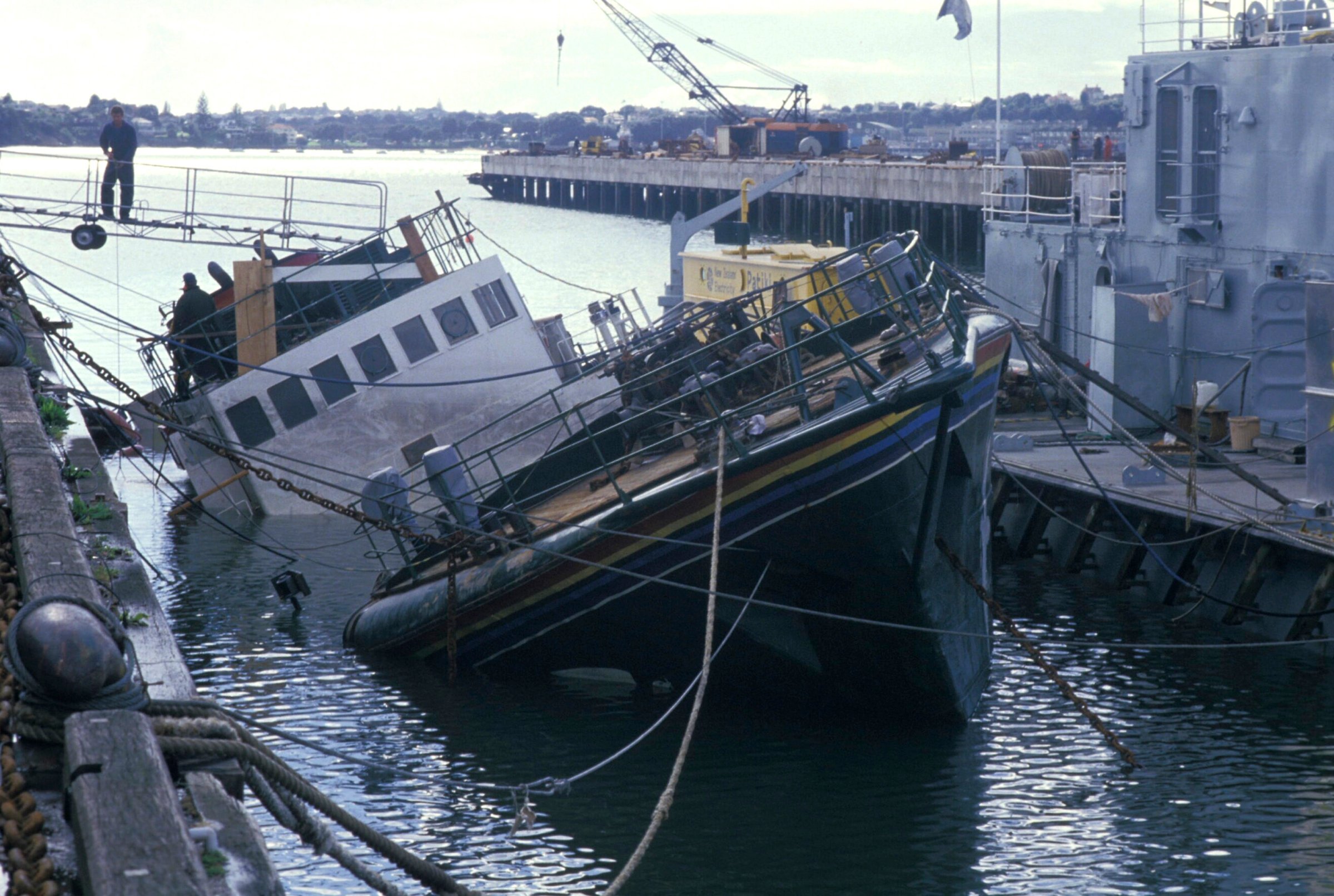
The French secret-service agent who led an attack on a Greenpeace ship that killed photographer Fernando Pereira 30 years ago has apologized publicly for the first time.
Speaking to the New Zealand station TVNZ on Sunday, Jean-Luc Kister said now was the right time to apologize to Pereira and his family for what he said was an “accident.”
“Now that emotions have calmed, and also with the hindsight I have regarding my professional life, I thought that this was a chance for me to express both my deepest regrets and my apologies,” Kister told TVNZ.
On July 10, 1985, Greenpeace activists on board the Rainbow Warrior, which was moored in Auckland, were preparing to sail to French Polynesia to protest against French nuclear testing on Mururoa atoll.
In what the BBC called one of the most notorious acts of state sabotage, Kister and his 12-man team, who were working for the French spy agency DGSE, planted two mines on the vessel. The explosions sank the Rainbow Warrior and killed Portuguese photographer Pereira.
Kister said that it was not his team’s intention to kill anybody in the attack. “I have the blood of an innocent man on my conscience, and that weighs on me,” he told French investigative site Mediapart.
Kister said the mission, which was ordered by then French Defense Minister Charles Hernu was “disproportionate” and “an unfair clandestine operation conducted in an allied, friendly and peaceful country.”
But, he pointed out, “We had to obey orders, we were soldiers.”
Greenpeace said in a statement that the apology “will not bring Fernando back but proves once again that our colleague was sacrificed in the name of a state interest that even one of the state’s servants is calling into question.”
Two other agents who took part, Alain Mafart and Dominique Prieur, were arrested in New Zealand two days after the attack and sentenced to 10 years in jail for manslaughter. They were transferred to French Polynesia as part of a settlement and released two years later.
France paid $8.2 million in damages to Greenpeace and in 1996 stopped the nuclear testing that the activist group protested.
[TVNZ]
More Must-Reads from TIME
- Cybersecurity Experts Are Sounding the Alarm on DOGE
- Meet the 2025 Women of the Year
- The Harsh Truth About Disability Inclusion
- Why Do More Young Adults Have Cancer?
- Colman Domingo Leads With Radical Love
- How to Get Better at Doing Things Alone
- Michelle Zauner Stares Down the Darkness
Write to Helen Regan at helen.regan@timeasia.com